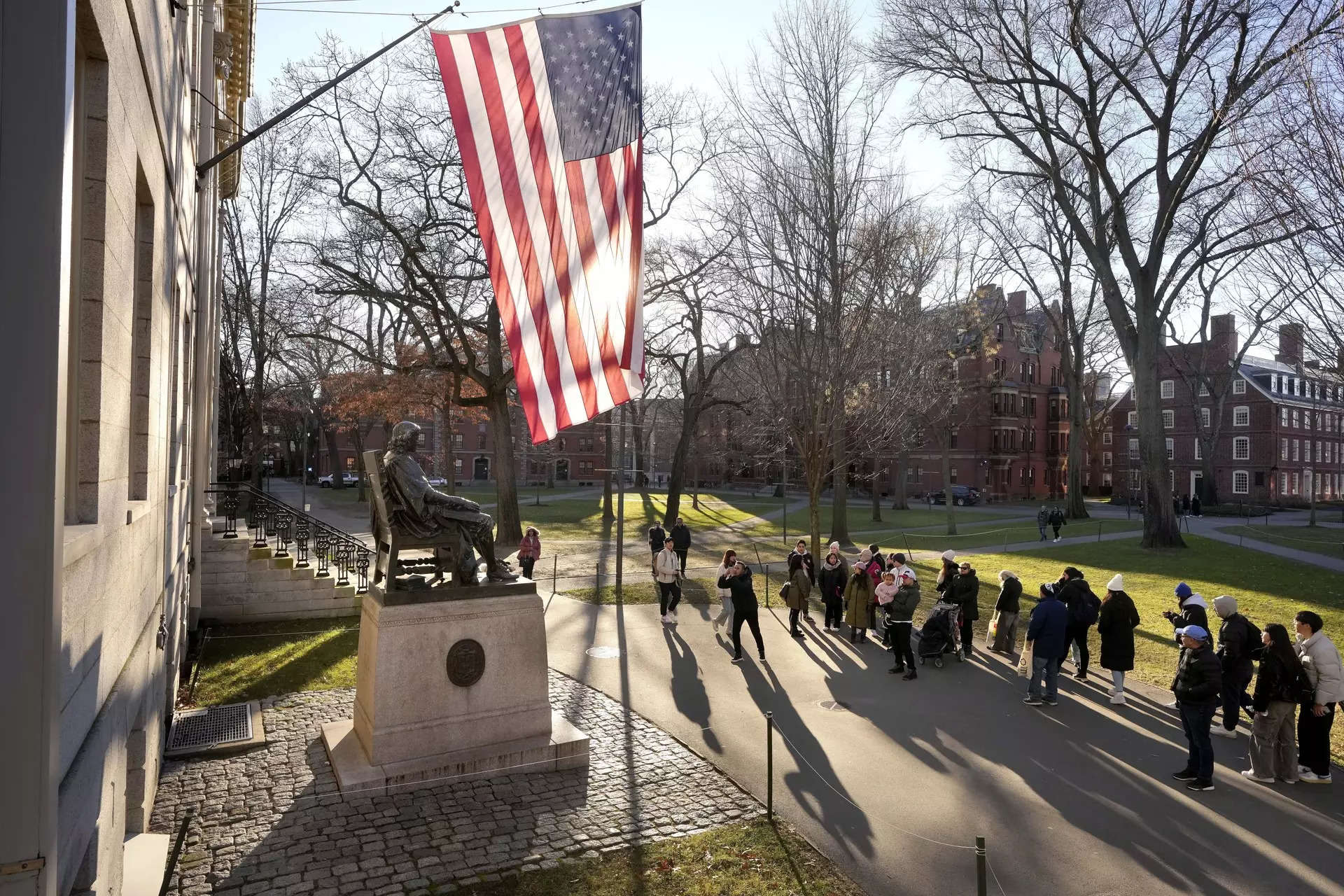A US House committee leader criticized Harvard University for providing “woefully inadequate” responses to an inquiry about antisemitism on campus, ensuring further tensions between lawmakers and the university.
“Rather than answering the committee’s request in a substantive manner, Harvard has chosen to provide letters from nonprofits and student handbooks, many of which are already publicly available,” Republican Virginia Foxx, head of the House Education and the Workforce Committee, said in an emailed statement on Tuesday.
Foxx warned that Harvard could face “compulsory measures” if it fails to cooperate with the inquiry. The committee has the authority to issue subpoenas to obtain information.
Harvard has come under intense scrutiny from lawmakers over how it’s handled allegations of rising antisemitism on campus. Two congressional committees have begun investigations, and the US Education Department is conducting its own probe.
Harvard is committed to cooperating with the Congressional inquiry, providing information, and addressing key questions raised by the committee, said spokesman Jason Newton in a statement.
“We denounce any form of antisemitism in the strongest possible terms and are committed to the safety and well-being of our students,” Newton said on Tuesday. “We intend to continue to engage with the Committee in a dialogue to respond to their ongoing requests.”
The committee sent a letter on January 9 to Harvard CorpSenior Fellow Penny Pritzker and Interim President Alan Garber requesting a cache of documents, emails and social-media posts involving antisemitism on campus, giving the them until January 23 to reply.
The requests covered reports of antisemitic incidents on campus since January 2021, an account of disciplinary actions to address allegations of hate or harassment, as well as Jewish student enrollment rates dating back more than two decades and attempts by Harvard to understand the reasons for any trends.
The committee also asked for a list of all foreign donations and funding, singling out Qatari sources over the past few years.
Foxx said that Harvard’s response was insufficient because it provided information that’s already in the public domain — not internal communications that were requested from offices that included the president and general counsel as well as minutes of meetings from Harvard’s governing body, board of overseers, and other school groups.
The House committee is also separately investigating the university’s handling of plagiarism allegations against Claudine Gay, who stepped down as Harvard president on January 2. Harvard turned in those documents last week.
Gay drew sharp criticism from donors and alumni after she was initially slow in condemning Hamas’s October 7 attack on Israel. She faced mounting pressure to resign after her widely derided testimony on antisemitism before the Education Committee in December, when Gay failed to condemn calls for genocide against Jews as a violation of university policy.
The House Ways and Means Committee is conducting its own inquiry about whether failures to condemn antisemitism could affect the tax-exempt status of Harvard, the University of Pennsylvania, the Massachusetts Institute of Technology and Cornell University.
“Rather than answering the committee’s request in a substantive manner, Harvard has chosen to provide letters from nonprofits and student handbooks, many of which are already publicly available,” Republican Virginia Foxx, head of the House Education and the Workforce Committee, said in an emailed statement on Tuesday.
Foxx warned that Harvard could face “compulsory measures” if it fails to cooperate with the inquiry. The committee has the authority to issue subpoenas to obtain information.
Harvard has come under intense scrutiny from lawmakers over how it’s handled allegations of rising antisemitism on campus. Two congressional committees have begun investigations, and the US Education Department is conducting its own probe.
Harvard is committed to cooperating with the Congressional inquiry, providing information, and addressing key questions raised by the committee, said spokesman Jason Newton in a statement.
“We denounce any form of antisemitism in the strongest possible terms and are committed to the safety and well-being of our students,” Newton said on Tuesday. “We intend to continue to engage with the Committee in a dialogue to respond to their ongoing requests.”
The committee sent a letter on January 9 to Harvard CorpSenior Fellow Penny Pritzker and Interim President Alan Garber requesting a cache of documents, emails and social-media posts involving antisemitism on campus, giving the them until January 23 to reply.
The requests covered reports of antisemitic incidents on campus since January 2021, an account of disciplinary actions to address allegations of hate or harassment, as well as Jewish student enrollment rates dating back more than two decades and attempts by Harvard to understand the reasons for any trends.
The committee also asked for a list of all foreign donations and funding, singling out Qatari sources over the past few years.
Foxx said that Harvard’s response was insufficient because it provided information that’s already in the public domain — not internal communications that were requested from offices that included the president and general counsel as well as minutes of meetings from Harvard’s governing body, board of overseers, and other school groups.
The House committee is also separately investigating the university’s handling of plagiarism allegations against Claudine Gay, who stepped down as Harvard president on January 2. Harvard turned in those documents last week.
Gay drew sharp criticism from donors and alumni after she was initially slow in condemning Hamas’s October 7 attack on Israel. She faced mounting pressure to resign after her widely derided testimony on antisemitism before the Education Committee in December, when Gay failed to condemn calls for genocide against Jews as a violation of university policy.
The House Ways and Means Committee is conducting its own inquiry about whether failures to condemn antisemitism could affect the tax-exempt status of Harvard, the University of Pennsylvania, the Massachusetts Institute of Technology and Cornell University.
